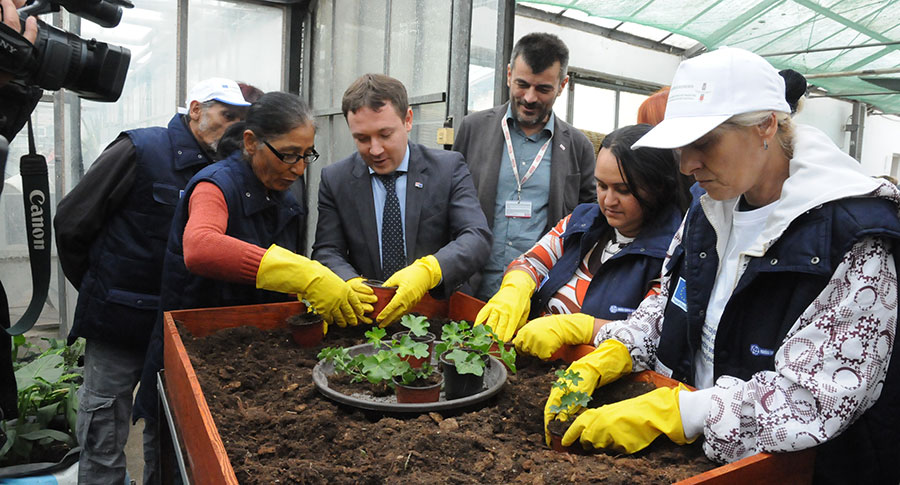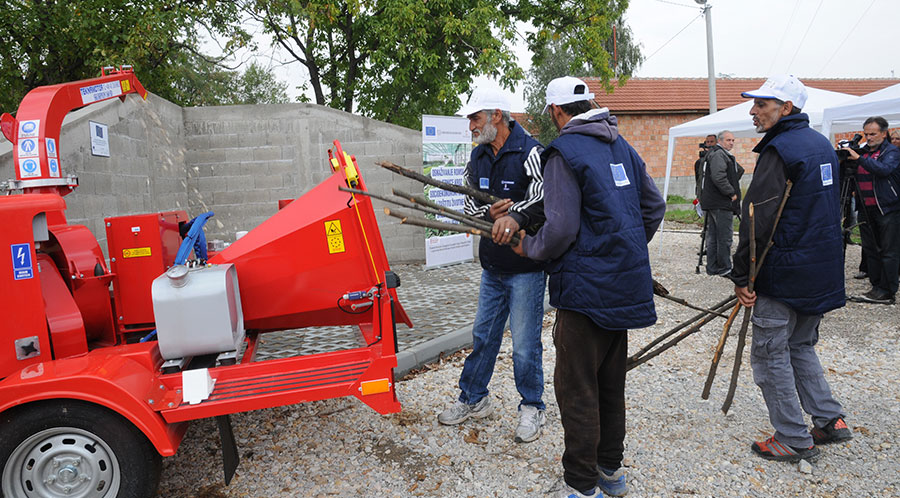Kraljevo has received a compost production unit equipped with wood chipper, thanks to EU donation worth EUR34,000.
Compost production unit and the wood chipper have been handed over to the PUC „Cistoca“ Kraljevo by Marko Matovic Assistant Mayor for Social Affairs, Nicolas Bizel of the EU Delegation to Serbia and Marina Cremonese DRC Country Director.
This donation will help the unemployed Roma to complete on-job-mentorship and acquire comprehensive knowledge of compost production and waste management. Also, the initiative aims to assist the public utility company in reducing the costs related to provision of organic fertilisers and increasing employability of Roma in the public sector.
 In the past year, 55 Roma successfully completed the business advisory trainings, 29 of whom received the income generation grants for business initiatives in the sector of agricultural production, floriculture, preparation of firewood, gardening, waste management and maintenance of premises and furniture (greenhouses, presses, wood cutters, trimmers, two-wheel tractors, chainsaws).
In the past year, 55 Roma successfully completed the business advisory trainings, 29 of whom received the income generation grants for business initiatives in the sector of agricultural production, floriculture, preparation of firewood, gardening, waste management and maintenance of premises and furniture (greenhouses, presses, wood cutters, trimmers, two-wheel tractors, chainsaws).
Also, a Local Action Plan for Roma (2017-2025) has been drafted with full participation of all relevant actors from four sectors (education, health, housing and employment) and other stakeholders. The Local Action Plan will be formally adopted in the coming period.
All activities are implemented within the EU-funded programme “Empowering Roma community for socio-economic development and environmental protection in the City of Kraljevo” implemented by the Danish Refugee Council Serbia and the City of Kraljevo.
This activity is a part of a wider project “European support for inclusive society,” funded by the EU with EUR5.4 million and implemented by the Delegation of the European Union to the Republic of Serbia in cooperation with the Ministry of Labour, Employment, Veteran and Social Affairs.
“European support for inclusive society,” a project funded by the European Union with EUR5.4 million, aims to ensure greater social inclusion of vulnerable groups in Serbia such as the elderly, children, minorities, including Roma, and others. The EU has granted EUR4.3 million in the form of 28 grants under the project to be implemented in 36 towns and municipalities across Serbia by the end of 2017. The projects implemented by national and provincial social welfare institutions, towns and municipalities, social welfare centres, citizens’ associations, foundations, educational institutions and public companies will increase the scope and quality of services at the local level in social and health care, housing, education and employment, and thereby strengthen the social inclusion of vulnerable groups.
The project is implemented by the EU Delegation to Serbia in cooperation with the Ministry of Labour, Employment, Veteran and Social Affairs. For more information about the project, visit www.socijalnainkluzija.rs




